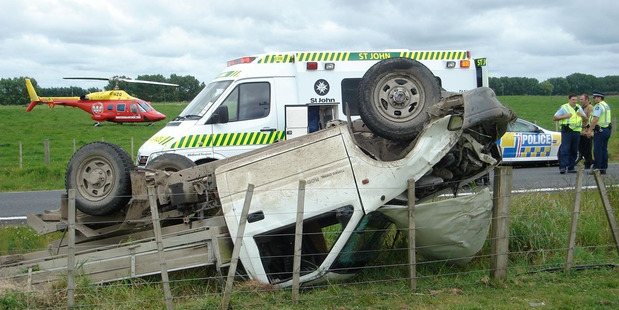
A recent article in the New Zealand Herald pointed out New Zealand has one of the lowest rates of deceased organ donation despite the sustained efforts of Organ Donation New Zealand.
This is tragic especially in light of another article published about Leon Jayet-Cole, the five-year old from Christchurch who died recently. His liver and both kidneys were successfully transplanted with his mother's consent.
New Zealand should do much better and the answer lies in changing the way we donate organs following death. We should move to an explicit 'opt-out' system where the default option is that you are happy to be a donor. Of course, anyone not wishing to donate their organs post-mortem is always free to opt-out when asked.
Research in behavioural economics suggests that a simple change to the default option such as this makes a big difference. For example, when people are automatically enrolled in a retirement savings program but given the choice of opting out, a large majority choose to stay enrolled and end up saving more for retirement than when they are explicitly asked to opt-in to a savings scheme.
Opt-out systems differ from country to country. At one end we have Wales which will be moving to such as system on December 1, 2015. In Wales people are being asked to register their decision on the Organ Donation Wales website.The current system in NZ relies on people declaring to be a donor at the time of applying for or renewing a driver license when we are asked to answer either 'Yes' or 'No' to the following question: "Would you be willing to donate organs in the event of your death?" This is in-between opting out and opting in.
The website states: "There is a big shortage of organs for transplants in Wales and the UK... organ donation is rare. Another reason for the shortage is that many families say no to organ donation if they don't know if their loved one wanted to donate."
The new system will be clearer for everyone. If family members are approached about organ donation, they will know that their loved one could have opted out but chose not to.
People in Wales have the choice of opting-in or out. However, anyone who has not recorded an organ donation decision (opt in or opt out), is considered to have provided consent to donating their organs.
This approach where non responders are assumed to have opted in - referred to as 'deemed consent' - is more flexible than that in others like Austria, Belgium or Spain which 'presume' consent.
The Austrian Hospitals Law allows "individual organs or parts of organs to be removed from a deceased person for transplantation, in order to save the life (or to restore the health) of another person."
However organs cannot be taken if the deceased person or that person's legal guardian has expressly made a declaration not to donate organs prior to the death.
Compared to this strict approach in Austria, presumed consent operates more benignly in Spain where doctors take active measures to ascertain that the next of kin do not object to organ recovery.
A study published in the British Medical Journal (BMJ) in 2009 looks at organ donation rates in Austria, Belgium and Singapore before and after the implementation of an opt-out system and finds dramatic increases in the number of donors per million of population per year after the introduction of presumed consent.
A study published in BMC Medicine in 2014 looks at 48 counties across the world. Out of these 25 have an opt-out system of some form or the other while the remaining 23 have opt-in. The authors report that on average there are approximately 14 deceased donors per million of population in countries that have an opt-out system which is significantly higher than those with an opt-in system. In opt-in countries there are approximately 10 donors per million on average.
However, the BMJ study also points out that while presumed or deemed consent laws are a step forward they will most likely not be enough. A number of other factors including a country's gross domestic product per capita and health expenditure per capita are equally if not more important.
Unless we are willing to move to a 'hard' presumed consent regime like Austria, the fact remains that the deceased's family members will continue to play a major role in any post-mortem organ recovery even in cases where the deceased has provided consent prior to death.
Here Spain provides a model via the introduction of transplant coordinators in hospitals. These trained coordinators approach bereaved family members and explain to them the need for and benefits of organ donation and do so in a sensitive manner that respects the family's grief.
Other countries including New Zealand have such coordinators as well but Spain's opt-out system coupled with investments in training the coordinator seems to make a big difference.
We propose that as a first step New Zealanders consider adopting a system similar to Wales by re-phrasing the donation question along the following lines:
There is a shortage of organs for transplants. In the event of your death you can choose to donate your organs to save someone's life. Of course, you have the right not to donate.
Please check the following box if you would prefer *not* to donate your organs. If you do choose to donate then please discuss this decision with your family members so that they are aware of your wishes.
After all the best way to honour our dead is to respect their wish to give a gift of life - to let someone else breathe through their lungs and see through their eyes.
Ananish Chaudhuri is a professor of economics at the University of Auckland. Tom Schnackenberg is a sailmaker and America's Cup veteran.






